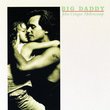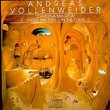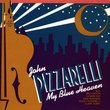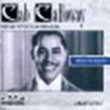| All Artists: Dietrich Fischer-Dieskau, Witold Lutoslawski, Witold Rowicki, Berlin Philharmonic Orchestra, Bavarian Radio Symphony Orchestra, Martha Argerich, Nelson Freire Title: The Essential Lutoslawski Members Wishing: 0 Total Copies: 0 Label: Philips Release Date: 1/11/2000 Genres: Pop, Classical Styles: Vocal Pop, Opera & Classical Vocal, Forms & Genres, Concertos, Historical Periods, Classical (c.1770-1830), Modern, 20th, & 21st Century, Instruments, Keyboard, Reeds & Winds, Strings, Symphonies Number of Discs: 2 SwapaCD Credits: 2 UPC: 028946404324 |
Search - Dietrich Fischer-Dieskau, Witold Lutoslawski, Witold Rowicki :: The Essential Lutoslawski
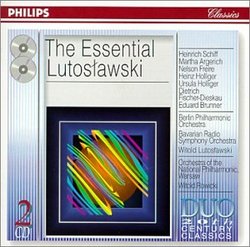 | Dietrich Fischer-Dieskau, Witold Lutoslawski, Witold Rowicki The Essential Lutoslawski Genres: Pop, Classical
|
Larger Image |
CD DetailsSimilarly Requested CDs
|
CD ReviewsBest Single Lutoslawski Purchase You Could Make Karl Henzy | 05/04/2000 (5 out of 5 stars) "If I had to recommend one CD as a Lutoslawski starter kit for a new listener, this would be it. For a double CD, it's inexpensive. It has works from the whole range of Lut's compositional periods and styles. And it has absolutely top notch musicians, orchestras, and conductors. The one draw back on a few selections is sound, since the recordings are older, but the sound quality is never poor, just not state of the art. Lut's 3d Symphony is, for me, his greatest masterpiece, an endlessly thrilling and mesmerizing work, combining his aleatory (chance)techniques with more planned symphonic gestures. The effect is a combination of passages of mysterious, faery-like beauty with other passages of powerful drama and force. And here you get Lut conducting. He is a great conductor of his own work, giving everything a snap and liveliness that even devoted, world class conductors like Salonen can't quite match.The Concerto for Orchestra is Lut's masterpiece from the earlier period when was still a largely tonal composer. It's a great work, proving that Lut's greatness later isn't just a matter of fancy techniques, but of a fine ear and sense of form, in whatever style he chose to work in.The Cello Concerto is a great drama, a powerful commentary on the fate of creativity under the repressions of the Soviet system (Poland was an iron-curtain country at the time).These recordings of Espaces du Sommeil and the Double Concerto have, respectively, the greatest male vocalist (Fischer-Deiskau) and the greatest oboist (Holliger) in the world, and Lut gives them music to display their full talents. Fischer-Deiskau puts a superb voice tone at the service of a great dramatic sense. Holliger plays lyrical passages and passages of "extended technique" equally well. What more is there to say. Of all modern composers, Lutoslawski is perhaps the most endlessly delightful, though it takes sometimes several listenings before someone new to Lut can appreciate what he's doing, since he's also completely original. I hope people will give this CD a try, and experience the great pleasure that Lutoslawski can give." One of the Great Composers Scott Spires | Prague, Czech Republic | 02/06/2001 (5 out of 5 stars) "I rank Lutoslawski as one of the 3 greatest composers of the past half-century (the others are Ligeti and Carter). His genius lies in his ability to write music that makes use of the most advanced modernist techniques, yet remains emotionally accessible and vividly dramatic.This Philips duo is packed with excellent performances of great music. The 3rd Symphony (my single favorite work) is an amazing rollercoaster of a piece, marked by wild aleatoric episodes, fierce orchestral conflagrations, and a strong but very idiosyncratic sense of symphonic development. The Concerto for Orchestra is every bit the equal of Bartok's, while the Cello Concerto, with its starkly dramatized depiction of struggle between soloist and orchestra, is quite unlike any other concerto I've heard. There are other goodies here, including the wild "Venetian Games", one of Lutoslawski's most radical pieces.As noted, the performances are generally excellent, and the composer is a first-class conductor of his own work. The liner notes are unfortunately skimpy. Still, at the 2-for-1 price, there's no reason not to get this. And if you respond to this music, there's plenty more: try Salonen's recordings on Sony, or the very fine (and cheap!) Lutoslawski series on Naxos." Best introduction to a modern master, a superb compilation R. Hutchinson | a world ruled by fossil fuels and fossil minds | 09/05/2002 (5 out of 5 stars) "Lutoslawski's music sounds to me like an early modern sensibility moving to incorporate more recent techniques. The two earliest pieces here are both superb -- "Concerto for Orchestra" (better than the Bartok piece by the same name!) and "Dance Preludes" from the early/mid 1950s. Following the post-Stalin thaw, Lutoslawski made contact with the West, and the two works from that initial encounter, "Funeral Music" (for Bartok) and "Venetian Games" are perhaps the highlights of the disc -- resolutely modern music that, again, maintains the accessibility of Bartok or Stravinsky. I don't find the "Cello Concerto" of 1970 compelling, but the "Concerto for Oboe, Harp & Chamber Orchestra" of 1980 is brilliant.
"Symphony No. 3," finished in 1983, is widely considered to be Lutoslawski's masterpiece, but I am not convinced. Similar structurally to his "Symphony No. 2" (avoid!) and his "String Quartet," but better, most of the work is development, but it never seems to develop into anything very noteworthy. Lutoslawski was trying too hard to be radical in these works, while his strength was in carrying on in a less radical style with light touches of serialism and later developments. Though Lutoslawski himself was conducting the Berlin Philharmonic, the original recording of the Third Symphony included on this disc is nowhere near as good as the performance just a month later by the Los Angeles Philharmonic, Esa-Pekka Salonen conducting. Look for the Sony disc of Lutoslawski's Symphonies No.s 3 & 4 (see my review). Another set worth checking out is called Lutoslawski: Orchestral Works, Songs; String Quartet, a recent 2-disc release in EMI's GEMINI series (see my review). The range of fantastic music on this disc alone reveals Lutoslawski's level of accomplishment among the late 20th century greats." |

 Track Listings (9) - Disc #1
Track Listings (9) - Disc #1


